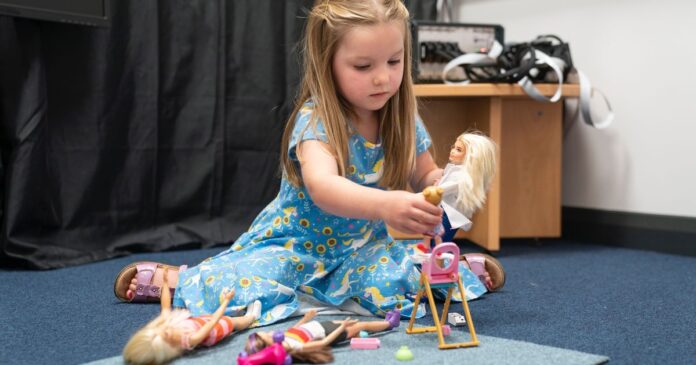A long-term study by Cardiff University has looked at the different ways neurotypical and neurodiverse children play with dolls – and how this sparks their brain activity
Playing with dolls could help the social development of children â including those with neurodiverse conditions such as autism, according to a study.
The research, from Cardiff University, found children exhibiting higher levels of autism traits showed increased brain activity in a key region associated with social processing, when engaging in conversations with individuals during doll play.
And the new findings suggested the broader social engagement with others while engaging in doll play was a unique pathway to social development for these children.
This was in contrast to what was observed in neurotypical children, who were more likely to discuss the dolls’ thoughts and emotions.


